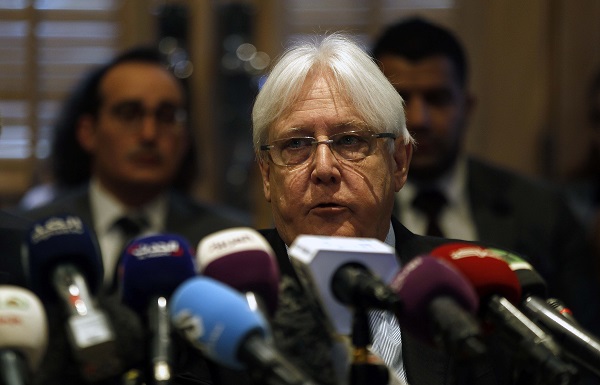United Nations, The UN envoy for Yemen has reported momentum toward a political settlement in Yemen has been building and urged parties concerned to continue practicing concession.
Martin Griffiths, the special representative for Yemen of the UN secretary-general, gave the example of the November 5 Riyadh Agreement signed by the government and Southern Transitional Council separatists, saying the progress “should serve as a catalyst to move Yemen swiftly toward settling this conflict through political means.”
He cited another sign of the change in Yemen, telling the Security Council that the past two weeks reported almost 80 percent fewer airstrikes across Yemen than in the two weeks prior, Xinhua news agency reported.
In recent weeks, there have been entire 48-hour periods without airstrikes for the first time since the conflict began, he added.
“We call this de-escalation, a reduction in the tempo of the war, and perhaps a move toward an overall ceasefire in Yemen,” Griffiths noted.
He further said the cessation of missile and drone attacks on Saudi territory announced by the Houthi rebels on Sept. 20 has been sustained for a second month in a row. “Efforts to de-escalate violence are holding.”
Turing to the situation around the strategic port of Hodeidah, he said the government agreed this month to establish a mechanism that helps to expedite the entrance of fuel shipments into Yemen, which is vital to the livelihoods of the Yemeni people.
Also, in Hodeidah, the conflicting parties have strengthened their adherence to the ceasefire, he said, reporting the establishment of the Ceasefire Enhancement and De-escalation Mechanism has allowed a reduction of the number of security incidents in the governorate: 40 per cent lower than before the mechanism came into effect.
Moreover, since the creation of five Joint Observation Posts on the frontlines, Hodeidah has seen a decrease of approximately 80 percent in the number of security incidents.
The UN envoy maintained that the leaders in Yemen “will need to reach an agreement on the political and security arrangements to end the fighting.”
He urged them to “lead in rebuilding the country, its economy and its social fabric,” and to “deal pragmatically with complex political challenges in a landscape that has changed dramatically during the years of conflict.”










